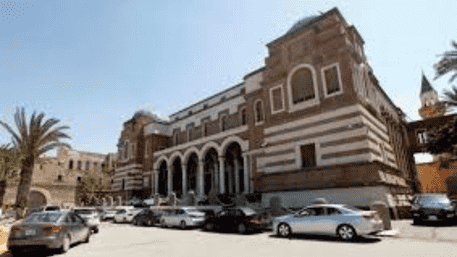The Central Bank of Libya announced on Sunday that it was suspending all operations after Musab Msallem, the bank’s head of information technology, was abducted from his home in Tripoli. The bank’s statement, shared on social media, confirmed that Msallem was taken by an unidentified group earlier that day.
Bank’s Response and Security Concerns
The Central Bank stated it would not resume operations until Msallem is safely released. The statement also revealed that other bank executives have received threats of abduction. The bank condemned these unlawful actions and called for an end to practices that jeopardize the safety of its employees and disrupt the banking sector.
Previous Incident and Political Tensions
This abduction follows a recent siege at the Central Bank’s headquarters by armed individuals aiming to force the resignation of the bank’s governor, Seddik al-Kabir. Richard Norland, the US special envoy for Libya, denounced these attempts, warning that such actions could lead to Libya losing access to international financial markets. He highlighted the ongoing risks stemming from Libya’s political instability.
Libya’s Continued Struggle
Libya, with a population of 6.8 million, has been struggling to stabilize after the 2011 NATO-backed uprising that ousted dictator Muammar Gaddafi. The country remains divided between the UN-recognized government in Tripoli, led by Prime Minister Abdulhamid Dbeibah, and a rival administration in the east supported by military strongman Khalifa Haftar. Despite periods of relative calm, clashes between various armed groups continue, with recent events exacerbating fears of broader conflict.







